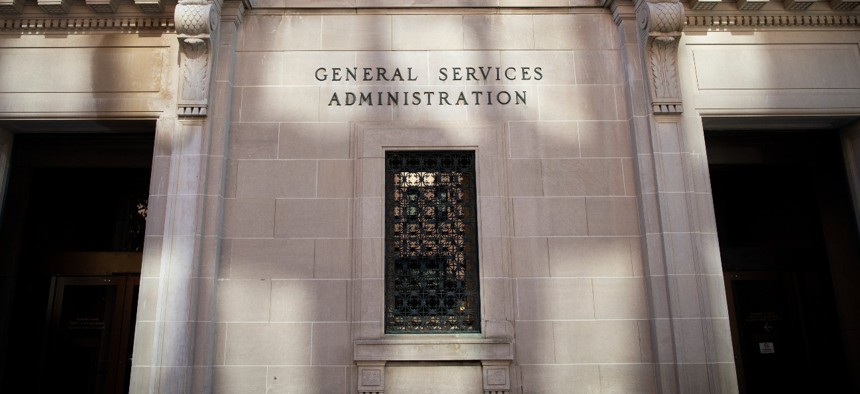
GSA's policies for the program are confusing, the IG said. Caroline Brehman/CQ-Roll Call, Inc via Getty Images
A Watchdog Finds Missing Guns, Other Issues With the Federal Government’s Firearm Donation Program
GSA lacks a clear policy and proper oversight for its efforts to provide states with guns that federal agencies no longer need.
The federal government sometimes donates the firearms it no longer needs—ranging from pistols to grenade launchers—to local law enforcement entities, but a new report has found it is not properly monitoring the program or ensuring it keeps track of all the guns.
Despite efforts by the General Services Administration to improve its donation initiative since its inspector general first flagged serious concerns in 2015, the auditors found the agency’s management of the program remains haphazard and vulnerable to significant risks. GSA employees are not following internal guidelines for the firearm donations, making it difficult to ensure the guns go to and remain at their intended destinations.
GSA's policies regarding the program are confusing, the IG said, and the agency lacks any single directive spelling out objectives and requirements.
“Without a clear published order, GSA operates the firearms program through a patchwork of improvised guidance consisting of standard operating procedures, memorandums, and program form templates,” the IG said. “Our evaluation found GSA is not complying with the Firearms Donation Program Operating Policy and Procedures, the primary guidance the agency adopted to provide direction and internal controls for the firearms program.”
The IG noted GSA has improved its management of the donations since the watchdog sent a management alert in 2015, when the agency failed to take basic steps to oversee the program and was unable to account for hundreds of guns. Still, the IG found GSA's current record keeping with the guns was "inaccurate and inadequate." The IG inspected a sample of 31 law enforcement agencies with federally donated guns and found examples—albeit a small number—that had incorrect serial numbers, inaccurate makes and models, or were missing altogether.
“Inaccuracies such as these limit GSA’s ability to both identify the type of firearms available for donation and to track those firearms,” the IG said.
States must have a distinct agency for surplus property to receive any donations from GSA, where the Office of Personal Property Management oversees the program. GSA has a website for managing any surplus property, including firearms. The guns are entered with a serial number, type, make and model. Other federal agencies have the first opportunity to claim the weapons but if they remain unclaimed, they become available for state law enforcement agencies.
The agency accepting the donation must sign an agreement that spells out its responsibilities to track the guns. GSA now has 5,300 donated firearms it must track, which are mostly pistols and rifles but includes some grenade launchers and machine guns.
GSA is falling short of its own standard operating procedures for its firearm donation program, with the IG finding staff lacked knowledge of their responsibilities and failed to implement controls. The agency is supposed to conduct quarterly reviews of its firearm donations, but at the time of the IG's investigation had not done so since late 2018. Staff responsible for the reviews said they only learned of that responsibility from the audit itself. They are required to conduct special checks of donated grenade launchers and machine guns, but have never done so. The failure leaves GSA unable to verify “the physical possession of donated Tier 1 firearms," the IG said. GSA also did not conduct inspections of a limited number of law enforcement agencies with donated guns to ensure states were administering the program correctly.
“GSA may lack both the information and mechanisms necessary for effectively tracking the status of the donated federal surplus firearms in its program,” the IG concluded.
GSA agreed to more clearly spell out the roles and responsibilities for its employees, as well as to update and define its standard operating procedures. It also promised to follow the IG’s recommendations to ensure the guns are better tracked and data related to them is better managed.







